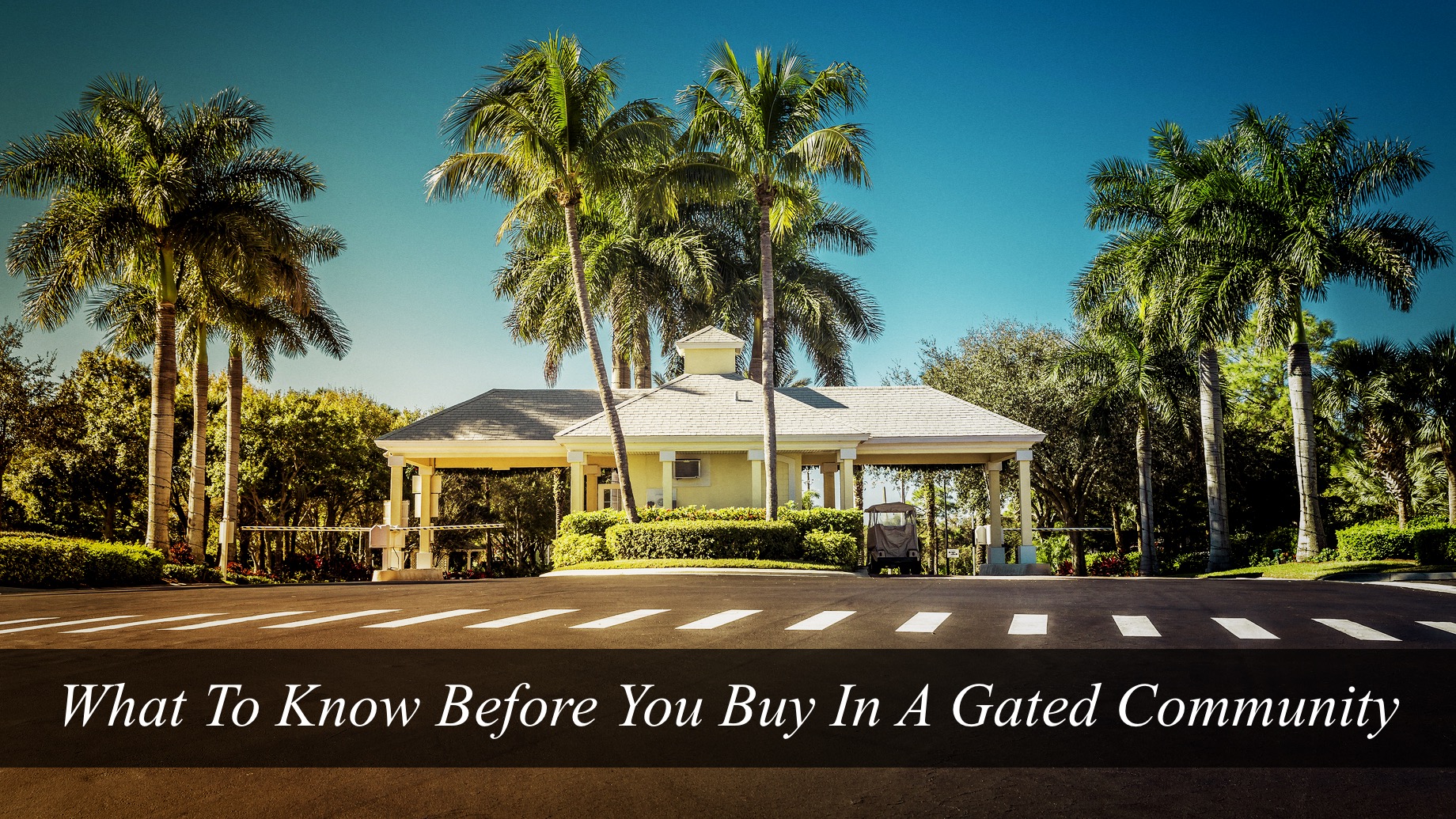
Right now, residential security is a top priority for many home buyers. Residential security can protect families and their properties. Residential security can also ensure privacy, and one way to get that security you might be after as a buyer is to opt for a gated community.
A gated community is a residential neighborhood or an estate with very tightly controlled entrances. There is typically a perimeter of walls or fences. Often, along with around-the-clock gate security and monitoring, these neighborhoods will include shared amenities.
Private security guards may be on-site all the time, and in addition to this being relatively common in high-end, luxury communities, you see it in retirement communities as well.
There are varying levels of security, and not all communities have guards. Some may just have an automated gate and keypad. Living in a community with a live guard will be more expensive in most cases, but simultaneously can be more secure so the expense may be worth it to you.
These communities certainly aren’t exclusive to the United States and Europe. They’re found in countries around the world.
If it’s something you’re thinking about, the following are considerations to keep in mind.
Privacy and Security
As you might guess, the most significant advantage of a gated neighborhood over one without a perimeter is privacy and safety.
Only residents and their invited guests can enter the gates. While that does cut down significantly on the potential for crime, it doesn’t eliminate it altogether.
Along with criminal activity being reduced, you’ll deal with fewer if any solicitors when you’re in a gated community simply because they aren’t able to gain access.
When you feel safer, it gives you peace of mind, and you can’t attach a dollar amount to that.
Less Traffic
A benefit of gated communities you might not think of as the added privacy and security is the fact there will be less traffic.
Gates limit traffic, so you can enjoy peaceful, quiet streets that are also safer for children. Your children can play outside and ride bikes with you having fewer worries about cars speeding through and using your street as a shortcut.
Better Upkeep
There’s a certain concept of luxury that tends to come with living in a gated community. There will likely be a strict homeowners’ association, and the upside of this is that they’re going to ensure homes and lawns are well-maintained. They’ll have a high level of control so you don’t have to worry about your neighbors not taking care of their yard or painting their home a crazy color.
Having well-maintained homes is not only good for you to be able to look at, but it’s also going to improve your home value if you decide to sell.
If you were planning to sell and your home is in a gated community, there’s more uniformity than you might find in other types of neighborhoods. This can make pricing easier because you have more reliable, transparent comps. There’s also a generally more predictable environment and experience that some potential buyers may prefer.
Are There Downsides To Life In A Gated Community?
While they might not be as immediately apparent, there are downsides to living in a gated neighborhood that you do need to think about before you make a buying decision. Some of these include:
- There are a massive amount of rules to deal with in gated communities, and HOAs can be militant about enforcing them. Again, whether or not this works for you is really a matter of preferences and your lifestyle. Some people like the rules, while others don’t like being told what they can and can’t do with their homes and property. Before you can make most changes to your home, you have to get approval, and there’s no guarantee the HOA is going to say yes. In fact, they often say no.
- If the HOA decides to make big changes, like adding a pool to your community, you may have little say in that, yet you’ll be paying for it.
- It’s challenging to have guests and events in a gated community. There will probably be parking restrictions in a gated neighborhood, and these parking restrictions can limit who you’re able to have over. Your guests if you do have them over may get stuck waiting in line at the guardhouse. During busy times, you can get stuck doing the same thing as a matter of fact.
- Gated communities sometimes limit the hours when workers and contractors can come to your home, and other visitors may have to be added to a list.
- Sometimes amenities in a neighborhood, as are relatively standard in gated communities, can actually lower your property value. For a lot of buyers, the cost of maintaining these amenities isn’t worth their use.
- If the roads in the neighborhood are designated private property, then the neighbors will have to pay to fix them when needed. That’s going to require negotiations and more money.
- When you have to jump through hurdles to make improvements to your home, it gives you limited opportunities to increase its value over the years.
- Some people find that gated communities are too homogenous and lack diversity.
- There are certain notions of exclusivity that come with these neighborhoods that you may not like or agree with.
- Not all gated neighborhoods actually have a high level of security. You may get a false sense of security if there’s a gate and take fewer personal precautions to keep your home and family safe.
At first glance, a gated neighborhood can seem like the perfect place to buy a new home, but you have to think about your personal situation and what you prefer before making that decision. There are certainly some pretty big downsides to consider before you move into a gated community. Being in this type of community isn’t for everyone, and there are long-term implications that aren’t always ideal.